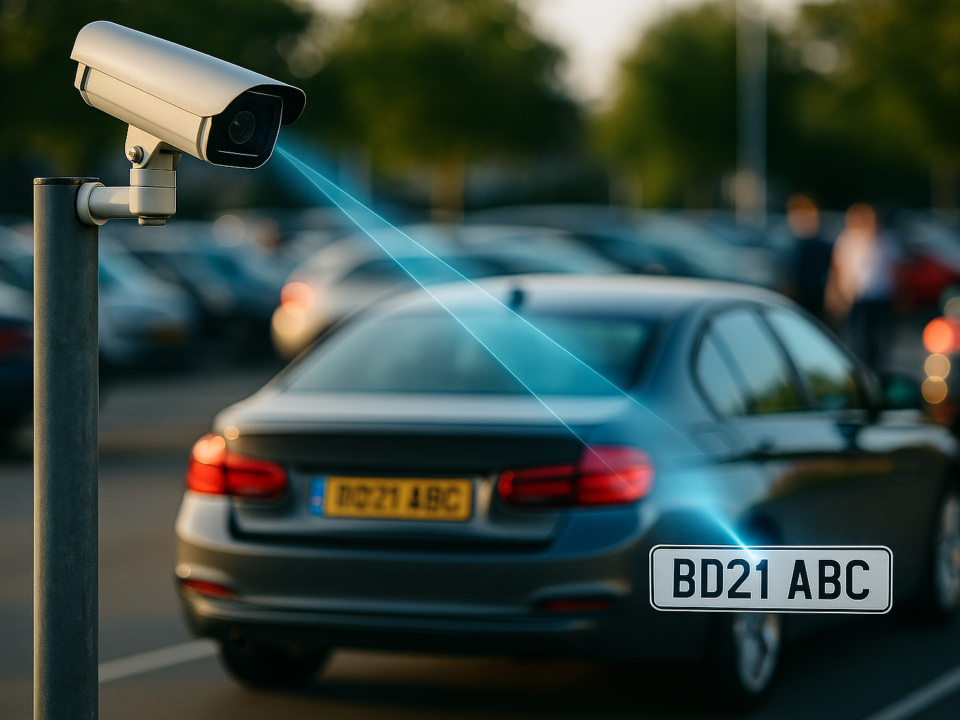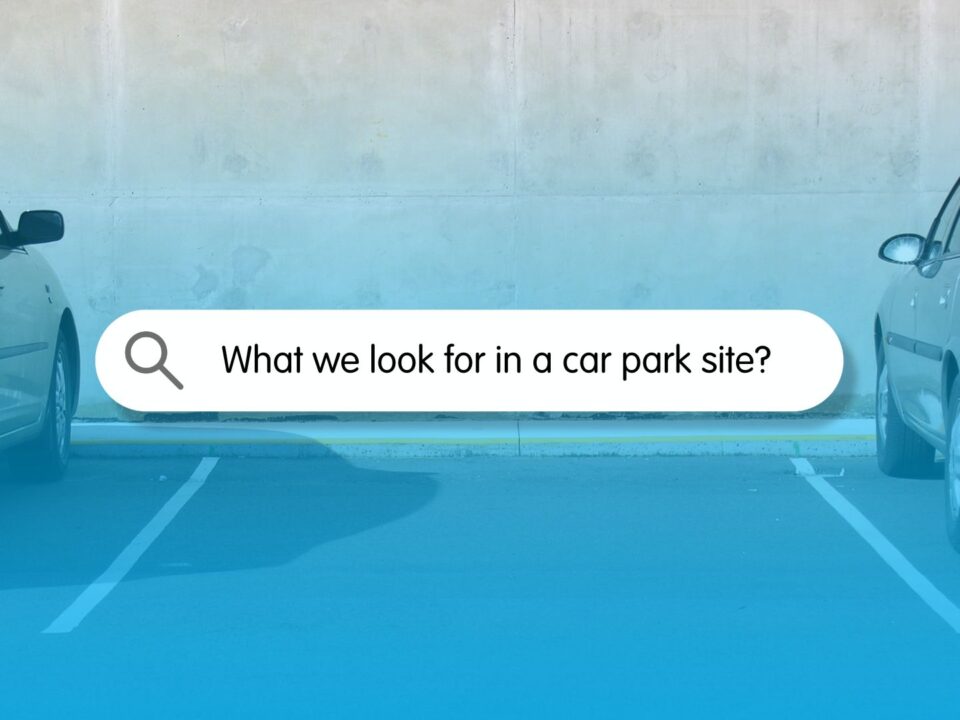Careful What You Wish For: No Car Park Controls, A Dream for Drivers, A Disaster for Landowners

Overwhelmed with the Task of “Sorting Out the Car Park”? You’re Not Alone, and We’re Here to Help
20/11/2024
The Hidden Impact of Poor Car Park Management on Your Business Reputation
04/02/2025Imagine, for a moment, a world where car park management controls on private land were no longer enforced. The dreaded prospect of receiving a Parking Charge Notice (PCN) in the post, often triggered by ANPR (Automatic Number Plate Recognition) systems, would vanish. You could pull into any private car park – at shopping centres, GP surgeries, or residential complexes – without concern about overstaying your welcome or parking in a restricted bay. No more anxiously watching the clock, fearing that a brief delay might lead to an unexpected charge.
For many of us, especially as motorists, this sounds like a relief. But as a landowner or property manager, you’ll know that what works for drivers in the short term doesn’t always lead to positive outcomes for your car park or business.

The Optimistic View: Free and Easy Parking
At first, this world without car park management controls might seem like a motorist’s dream:
No More PCNs: Drivers would no longer face the stress of receiving a PCN for overstaying or misunderstanding a car park’s terms.
Simpler, More Flexible Parking: Gone would be the concerns about time limits and restrictions. You could park freely at your local supermarket or GP surgery without worrying about surveillance systems or potential charges.
Reduced Financial Pressure: Without the possibility of receiving a PCN, drivers would no longer need to budget for unexpected car park charges. In this world, the burden of managing where, when, and for how long you park would simply disappear.
Imagine never needing to stress about your phone running out of battery just as you were about to extend your parking via an app. You wouldn’t have to worry about receiving a PCN for overstaying simply because you couldn’t access the app to pay for more time. The freedom to park without restrictions sounds like a dream come true, right?
At first glance, this might seem like an ideal world for anyone who has ever faced an unexpected PCN. The freedom to park without concern about charges would feel like a victory for frustrated motorists. And it’s likely that, as a landowner, you’ve felt this frustration yourself. But when we look a little closer, this dream world may not be as perfect as it seems.
Looking Closer: Where Do We End Up?
The idea of parking wherever you like, whenever you want, feels liberating at first. But in practice, what starts as a convenience for a few can quickly become an inconvenience for many. And as a landowner, that inconvenience could have serious consequences for your property and business.
The Reality: Car Park Chaos Ensues
1. Overcrowding and Misuse
Without car park management controls, one of the first issues that would arise is overcrowding. Picture your local shopping centre on a busy weekend. Now imagine people parking wherever they like, staying as long as they want. Without time limits or ANPR enforcement, cars could occupy bays for hours, or even days. That spot your customers were counting on finding…? Gone.
With no system in place to help manage turnover, parking could become a free-for-all. Some might take advantage of prime locations, staying indefinitely, leaving fewer spaces for paying customers, residents, or visitors. For a landowner, this could mean fewer customers accessing your business, a drop in satisfaction, and potentially, lost revenue.
2. Residential and Commuter Conflicts
Now think about residential areas, such as those self-contained apartment blocks for assisted living for the elderly. Without management, car parks meant for residents could easily be swamped by non-residents or commuters looking for free parking. Those private bays reserved for residents…? No longer reserved. Without any form of organisation, people would park wherever they pleased, leaving residents and property managers dealing with complaints, frustration, and conflict.
What begins as parking freedom could quickly turn into a daily struggle for spaces – hardly the hassle-free world you imagined. And for landowners, dealing with dissatisfied tenants or customers can become a major headache.
The Bigger Picture: Financial and Environmental Impact
3. Decline in Maintenance and Quality
Car park management does more than just enforce rules – it ensures that car parks are maintained. Without oversight, wear and tear would soon become apparent. Cracks in the surface might go unrepaired, lighting could fail, and signage could become neglected or vandalised. The experience of using a car park would deteriorate, making it less convenient and less safe for everyone.
For landowners, poorly maintained car parks don’t just impact the experience for drivers - they can also damage your business’s reputation. A well-maintained car park reflects well on your property and ensures a smooth customer experience. Wouldn't you prefer a well-lit, clean, and orderly car park that keeps customers coming back?
4. The Environmental Toll
Without car park management, the impact goes beyond convenience – it affects the environment too. Imagine cars circling endlessly, hoping for a space to ‘open up’. With no structure, the traffic would build, emissions would rise, and air quality would decline. That quick trip to the shops could turn into a long hunt for parking, and with it, a greater environmental cost.
ANPR systems may not be the most popular with everyone, but by ensuring turnover and helping manage the flow of vehicles, they contribute to reduced congestion and lower emissions. Without these systems, the supposed freedom of unregulated parking would come at a greater environmental cost – a cost that could affect your business’s sustainability goals or the community you serve.

Unexpected Consequences: What Happens Without a Car Park Management System
As we explore this imagined world without car park management, it becomes clear that what seems like freedom can quickly lead to challenges. Without some kind of system in place, it’s easy for convenience to slip away, replaced by disorder and inefficiency.
For landowners and property managers, this could mean constant headaches – from overcrowding and complaints to lost revenue and declining standards. PCNs and management controls might feel restrictive at times, but they serve an important purpose: ensuring that spaces are available for those who need them and that your property runs smoothly.
Shared Responsibility: A Balance That Works
Managing the use of car parks is already happening in a way that keeps things fair. The British Parking Association (BPA) and the International Parking Community (IPC) have come together to create a joint code of practice, ensuring that operators like Park & Control adhere to high standards of fairness, transparency, and enforcement. Through its parent company, APCOA, Park & Control plays a key role in making sure car parks function smoothly and fairly, preventing the kind of chaos we’ve just imagined.
This cooperation is part of a wider effort to make car park management more equitable and efficient, ensuring that everyone – from drivers to landowners – benefits from a system that works.
The Conclusion: It’s About Balance
At first, the idea of a world without car park management controls might seem like a relief – no more PCNs, more freedom, and less stress over parking. But as we’ve seen, that freedom could come with hidden costs: overcrowding, lack of security, environmental issues, and deteriorating infrastructure.
In practice, car park management isn’t just about rules – it’s about creating a system that works for everyone. It keeps spaces available, safe, and accessible while maintaining the quality of the car park itself. For landowners and businesses, this balance helps protect your investment, improve customer satisfaction, and keep things running smoothly.
So, the next time you think about a world without car park controls, it’s worth considering that some structure and organisation are what make parking easier, safer, and fairer for all of us.






